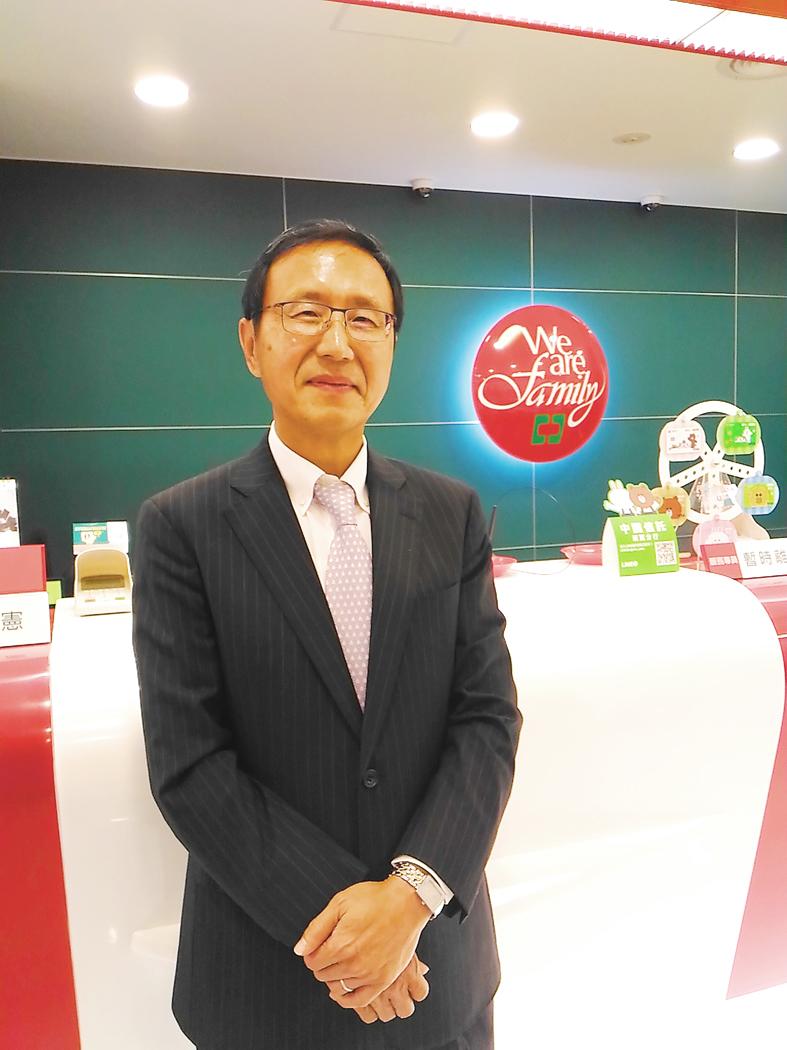CTBC Bank (中國信託銀行) president James Chen (陳佳文) yesterday confirmed that the bank had made a bid for Citibank Taiwan Ltd’s (花旗台灣) retail banking business, but it did not join the second round of bidding.
Chen did not reveal how much the bank bid for Citi’s business, only saying that it was “reasonable.”
“It would have been great if we had been able to purchase Citi’s business, but the investment would not have been economic if it costs us a big fortune,” Chen told reporters on the sidelines of an event in Taipei.

Photo: Lee Ching-hui, Taipei Times
The effect of acquiring Citi’s retail banking business would not have been as significant for CTBC as it would have been for other banks, “as we are already the leading player [in consumer banking], and our consumers overlap with those of Citi Bank Taiwan,” he said.
CTBC Bank would surely face more pressure if other banks acquired Citi’s retail banking, but CTBC does not fear the competition as the local consumer banking market has always been competitive, he said.
Asked whether Citi would sell its local unit with its Chinese unit, Chen said that Citi is still likely to sell the local unit separately, if the highest bidder is only interested in the local unit.
CTBC Bank was the first bank that verified its bid for Citi Bank Taiwan’s retail banking business. Other local financial companies that have reportedly filed bids, such as Fubon Financial Holding Co (富邦金控) and Cathay Financial Holding Co, have not commented on the reports.
Citibank Taiwan Ltd’s parent company, Citigroup Inc, in April announced that it would exit the retail banking business in 13 markets, including Taiwan.
The Financial Supervisory Commission has requested that the buyer have higher-than-average capital adequacy, sufficient capital and capability to take over Citi Bank Taiwan’s large-scale business and more than 500,000 clients.

AI BOOST: Although Taiwan’s reliance on Chinese rare earth elements is limited, it could face indirect impacts from supply issues and price volatility, an economist said DBS Bank Ltd (星展銀行) has sharply raised its forecast for Taiwan’s economic growth this year to 5.6 percent, citing stronger-than-expected exports and investment linked to artificial intelligence (AI), as it said that the current momentum could peak soon. The acceleration of the global AI race has fueled a surge in Taiwan’s AI-related capital spending and exports of information and communications technology (ICT) products, which have been key drivers of growth this year. “We have revised our GDP forecast for Taiwan upward to 5.6 percent from 4 percent, an upgrade that mainly reflects stronger-than-expected AI-related exports and investment in the third

Mercuries Life Insurance Co (三商美邦人壽) shares surged to a seven-month high this week after local media reported that E.Sun Financial Holding Co (玉山金控) had outbid CTBC Financial Holding Co (中信金控) in the financially strained insurer’s ongoing sale process. Shares of the mid-sized life insurer climbed 5.8 percent this week to NT$6.72, extending a nearly 18 percent rally over the past month, as investors bet on the likelihood of an impending takeover. The final round of bidding closed on Thursday, marking a critical step in the 32-year-old insurer’s search for a buyer after years of struggling to meet capital adequacy requirements. Local media reports

TECHNOLOGICAL RIVALRY: The artificial intelligence chip competition among multiple players would likely intensify over the next two years, a Quanta official said Quanta Computer Inc (廣達), which makes servers and laptops on a contract basis, yesterday said its shipments of artificial intelligence (AI) servers powered by Nvidia Corp’s GB300 chips have increased steadily since last month, should surpass those of the GB200 models this quarter. The production of GB300 servers has gone much more smoothly than that of the GB200, with shipments projected to increase sharply next month, Quanta executive vice president Mike Yang (楊麒令) said on the sidelines of a technology forum in Taipei. While orders for GB200 servers gradually decrease, the production transition between the two server models has been

ASE Technology Holding Co (日月光投控), the world’s largest integrated circuit (IC) packaging and testing supplier, yesterday announced a strategic collaboration with Analog Devices Inc (ADI), coupled with the signing of a binding memorandum of understanding. Under the agreement, ASE intends to purchase 100 percent shares of Analog Devices Sdn Bhd and acquire its manufacturing facility in Penang, Malaysia, a press release showed. The ADI Penang facility is located in the prime industrial hub of Bayan Lepas, with an area of over 680,000 square feet, it said. In addition, the two sides intend to enter into a long-term supply agreement for ASE to